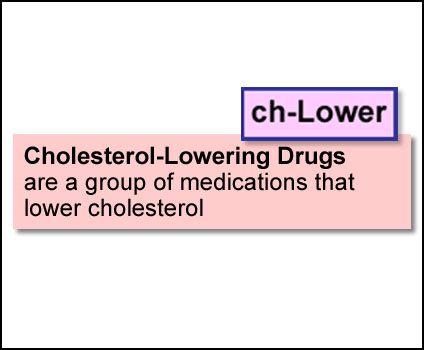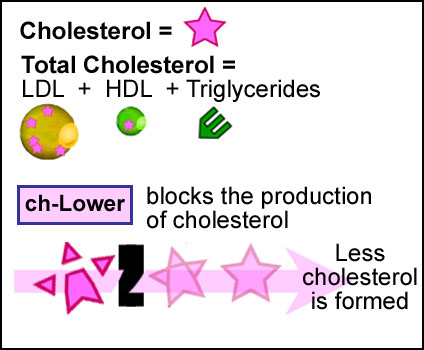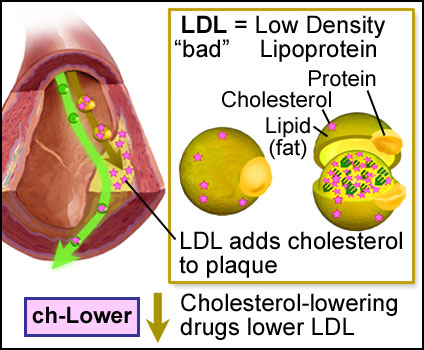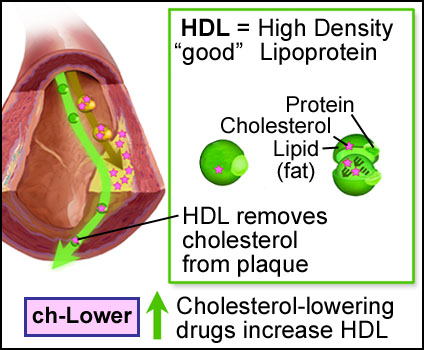
Cholesterol-Lowering Drugs
Cholesterol-Lowering Drugs help reduce the “bad” cholesterol (LDL), increase the “good” cholesterol (HDL) and reduce triglycerides (a blood fat). There are several classes of drugs that are used to treat cholesterol, including statins. Your doctor may prescribe a “combination” therapy of drugs for your specific situation. An elevated cholesterol level (hypercholesterolemia) is a major risk factor for coronary heart disease and cholesterol-lowering drugs help to reduce that risk. Due to potential side effects, patients who are taking most cholesterol-lowering drugs may need to have periodic liver function tests.
Some cholesterol-lowering drugs that are available are: HMG CoA Reductase OInhibitors (also know as statins: Atorvastatin, Fluvastatin, Lovastatin, Pravastatin, Rosuvastatin and Simvastatin), Bile Acid Sequestrants (Colesevelam, Cholestyramine and Colestipol), Nicotinic acid, Gemfibrozil, Probucol and Clofibrate.
Figure 1: Cholesterol-lowering drugs
Figure 2: Components of the blood’s total cholesterol score, cholesterol-lowering drugs reduce the body’s production of cholesterol.
Figure 3: Cholesterol-lowering drugs reduce LDL .
Figure 4: Cholesterol-lowering drugs increase HDL.
Visit Ohio Heart and Vascular Center for more information.



